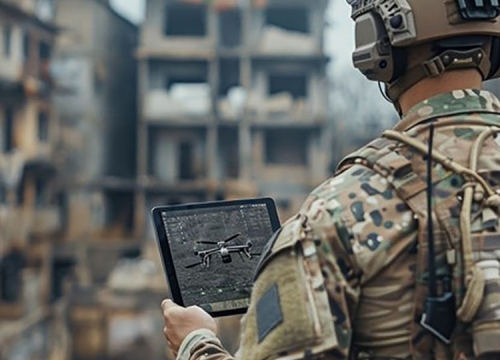Artificial Intelligence in Military Decision Making: Legal and Humanitarian Implications
Event


ICRC / AI Generated
Military uses of artificial intelligence (AI) are becoming increasingly sophisticated and widespread. A growing number of reports allege the use of AI in military planning and decision-making processes, including about who or what to target. What are the legal implications when these kinds of tools are used on the battlefield? What new risks might they create for civilians and other protected persons, and how can they be designed and used to mitigate these risks?
This event launches two significant reports that consider these questions in the context of AI in military decision-making. The first report, produced by the International Committee of the Red Cross (ICRC) and the Geneva Academy of International Humanitarian Law and Human Rights, highlights central themes arising from two expert workshops on AI decision support systems (AI DSS), held in November 2022. The second, authored by Arthur Holland Michel, titled "Decisions, Decisions, Decisions: Computation and Artificial Intelligence in Military Decision-Making," draws on interviews and research to provide an in-depth analysis of the trends and implications of AI DSS.
Co-hosted by the ICRC and the Geneva Academy, at the ICRC headquarters in Geneva, this hybrid event aims to disseminate key findings from these reports, and promote discussion of how IHL and humanitarian considerations might influence the design and use of AI DSS in armed conflict.
Opening Remarks
Laurent Gisel
Head of the Arms and Conduct of Hostilities Unit, ICRC
Erica Harper
Head of Research and Policy Studies, Geneva Academy
Moderation
Alisha Anand
Project Officer for AI and Emerging Technologies at the Centre for Humanitarian Dialogue
Panelists
Arthur Holland Michel
Senior Fellow, Carnegie Council for Ethics in International Affairs
Anna Rosalie Greipl
Research Assistant, Geneva Academy
Georgia Hinds
Legal Adviser for new technologies of warfare, ICRC









